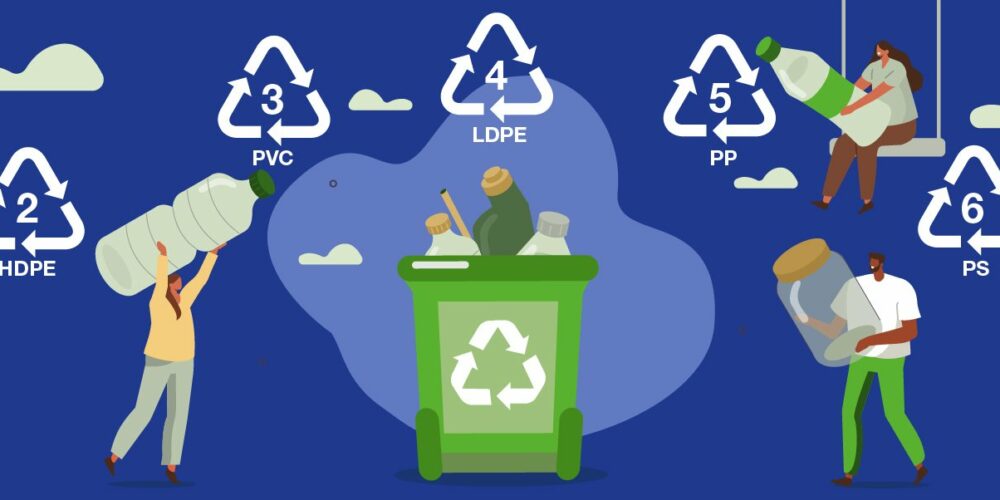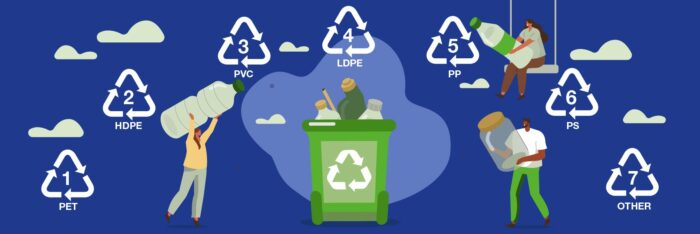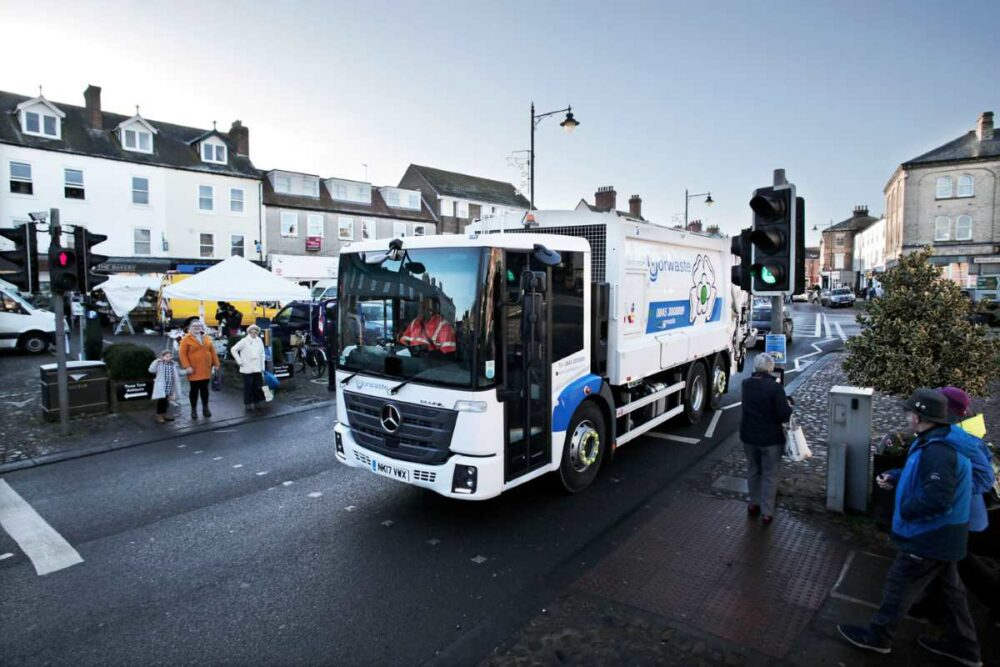Why can’t all plastic be recycled? — Your guide to maximising plastic recycling
Plastic production in the UK
1.6 million tonnes of plastic is produced in the UK each year, mostly using crude oil but sometimes it’s made from the sugars in corn or other plant-starches. This figure accounts for all of the plastic produced for many different product groups, be it automotive, construction or horticulture (to name a few), and, at the other end of the scale, packaging for everyday items.
Whether it’s created for single-use, or items that are intended to be used for longer periods of time, there comes a point for most plastics to be disposed of in some way.
Which raises the question… Can all plastic be recycled?
The seven types of plastic
In 1988, the Resin Identification Code (RIC) was developed to help people identify different types of plastic and its recyclability. This is a number from one to seven that you’ll see in the centre of a triangle on most plastic items.
- Polyethylene Terephthalate (PET) – commonly used for drinks bottles and cups
- High-Density Polyethylene (HDPE) – used for shampoo bottles and storage containers
- Polyvinyl Chloride (PVC) – includes rigid plastics like pipes and tubes
- Low-Density Polyethylene (LDPE) – used for beer six-pack fasteners and plastic bags
- Polypropylene (PP) – this is used in food containers and plastic car parts
- Polystyrene (PS) – often used to hold food, drinks cups and plastic utensils
- ‘Other’ – general category for acrylic, nylon and other plastics, often non-recyclable.
Even though the triangle sometimes appears as three arrows in the style of the familiar recycling symbol, this doesn’t necessarily mean the item is suitable for your everyday domestic or commercial recycling bin.
All plastics are not created equal
Each of the seven plastics are either thermoset or thermoplastics.
- Thermoplastics CAN be re-melted, re-molded and recycled.
- Thermoset plastics, due to their chemical make-up, CANNOT be remelted into new material and are non-recyclable.
RIC codes 1, 2 and 3 are among the most commonly recycled materials, and it’s useful to know that the lower the RIC number, the more likely it is that this item can be recycled. The higher up the scale it goes, the recyclability of plastic can become less achievable, economical or even environmentally effective.
When it comes to the actual reprocessing, different types of recyclable plastics must be separated. That’s because each RIC code reacts differently when it’s melted, and different reprocessing plants are set up specifically to take one (or a handful) of resin types.
Tips: Try swapping to more recyclable plastic wherever possible. And ensure the material is clean and dry to give it the best chance of being recycled when it goes through the sorting process.
Common issues
Plastic films, plastic wrapping and thin plastic bags – these generally fall into the RIC 4 category and commonly find their way into rigid plastic-only recycling bins, which can then clog reprocessing machinery.
Caps and lids – lids for plastic containers are sometimes made from a different resin, which cannot be recycled together, causing problems for recyclers. Caps and lids should be removed and separated from the containers.
Toxic or corrosive substances – drain cleaner, antifreeze or lawn pesticides containers can contaminate batches of plastic recycling. If in doubt, ask your waste provider (commercial) or visit your local household waste recycling centre (domestic) to learn how to dispose of these containers responsibly.
Disposable coffee cups – the cups cannot be recycled unless the plastic lining and paper is separated, which is impossible to do by hand and requires a special machine. The easiest items to recycle are the products made from a single material.
Tips: Reduce the use of plastic by using portable cups, reusable shopping bags and washable containers. Or think about how old plastic can be repurposed, for example can slightly damaged items, like old plastic laundry baskets, be put to use for storage?
Helpful Organisations
The more effective cause of action, when it comes to reducing your environmental impact, is to cut back on plastic completely. However, we understand this is not always practical. Explore alternative or specialist recycling outlets so that your plastic waste can go to the right people.
For domestic plastic waste, most supermarkets take soft plastics such as bags and wrappings. Schools and children’s centres are often on the lookout for clean materials for craft projects. There are even organisations that accept specific plastic waste. Toys4Life accepts old and damaged plastic toys and Greenfinder offers an old pen collection and recycling service.
Same goes for commercial plastic waste. There are increasing numbers of companies across many sectors committed to repurposing or reprocessing commercial plastic waste such as pipes, plastics used in vehicles and even flooring, Discover more via the British Plastic Federation here.


